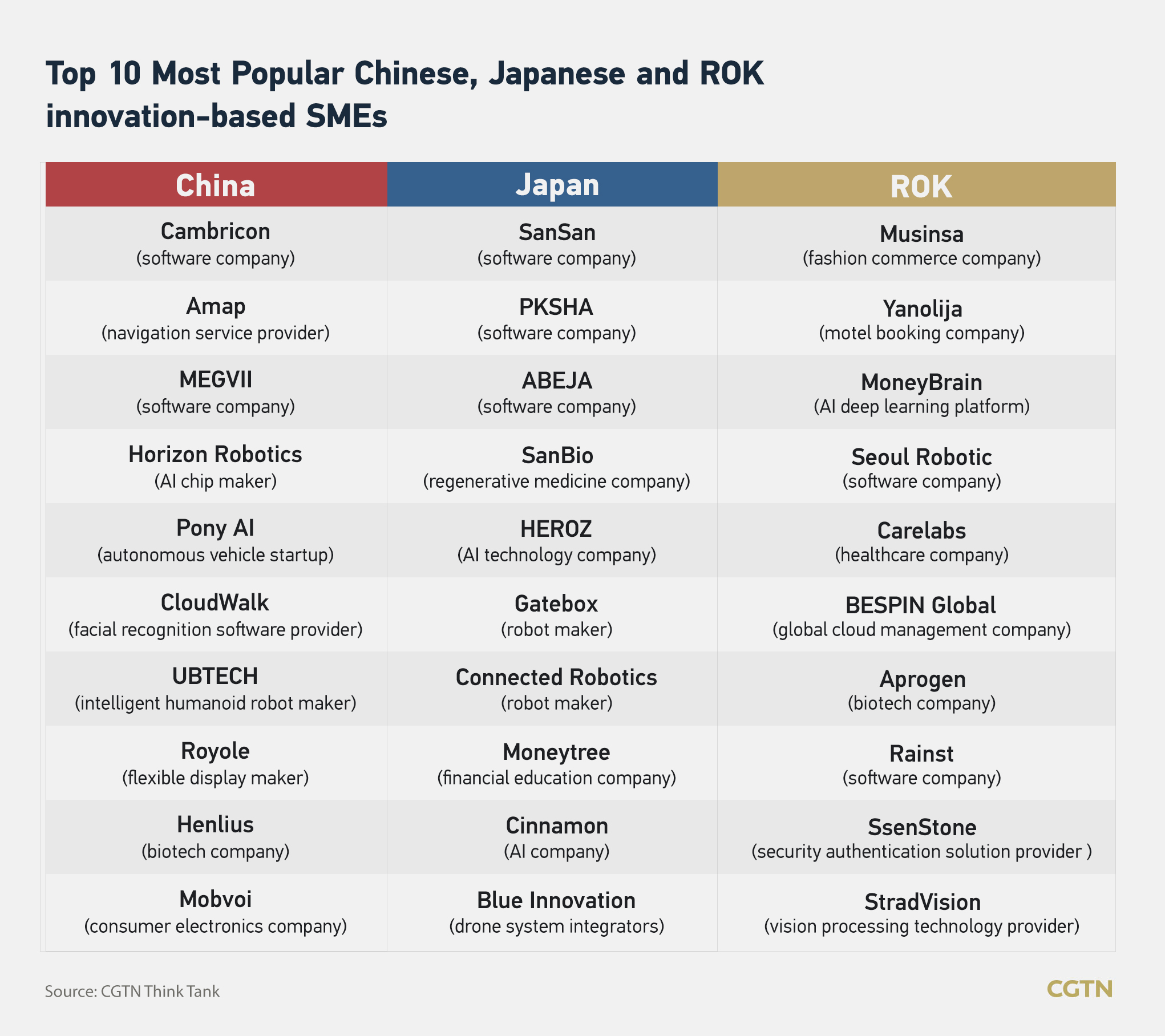China, Japan and the Republic of Korea (ROK) are complementary in the innovation of small and medium-sized enterprises (SMEs), which helps enhance trilateral cooperation on innovation-based SMEs to push forward digitalization in the post-pandemic era and the economic recovery of the region and the world at large, according to a report launched by CGTN Think Tank.
The report selected the 10 most popular innovation-based SMEs in each of the three countries by constructing a four-level index system, with factors including media exposure and information distribution considered. It analyzed SME performance in Meltwater's database from October 1, 2019 to September 30, 2020.
The selected SMEs cover a wide range of front line technological areas, including AI, autonomous vehicles, intelligent healthcare, software as a service (SaaS) and smart devices.

Chinese SMEs prevail in the development of core industrial technologies; Japanese SMEs are championing innovative and applicable ideas for technologies to be more impactful; and ROK SMEs are especially good at penetrating consumer markets to commercialize technologies, according to the report.
While Chinese and Japanese companies are tapping on the potential of future-oriented technologies like AI, autonomous vehicles, and robotics, ROK SMEs dedicate more attention to harvesting profits from the internet economy, leveraging technology to penetrate consumer markets, the report concluded.
The report also found the growing media coverage of these SMEs indicates a trend that the emerging technologies are embedded gradually into people's daily lives and bring both benefits and convenience.
The top 10 most popular Chinese innovation-based SMEs cover almost all well-recognized tech unicorns, which normally rank top 5 in their specialized fields. Software company Cambricon has a popularity rate as high as 75.04. Founded in 2016 by a group of scientists, the unicorn provides intelligent cloud servers, intelligent terminals and core chips for robots' central processing units, occupying a top spot in China's AI industrial landscape. Amap, a leading digital mapping service provider in China, is rated at 73.79. The company serves people's daily navigation demands with high precision AI navigation and location solutions.
Unlike their Chinese counterparts, which enjoy relatively equally distributed media attention, Japanese SMEs' popularity pattern yields a huge gap between the two most popular and the rest, the report discovered. SanSan and PKSHA, rated 77.68 and 57.31 respectively, enjoy most of media coverage. Those enjoying moderate popularity (with ratings ranging from 30.54 to 12.63) include ABEJA, SanBio, HEROZ, Gatebox, Connected Robotics and Moneytree.
Among the ROK's top 10 most popular SMEs, there is a considerable gap between Musinsa, Yanolija and MoneyBrain, with the rest rated below 20. Musinsa and Yanolja featured consumer services, including fashion magazines, lifestyles, e-commerce, online commercials, travel and delivery services. The two companies are also ranked top 2 in the specialized internet industry, the report found.

